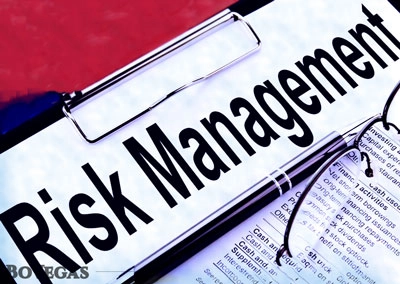



 For a while now, psychologists have introduced new insights that show we cannot consider human intelligence in a one-dimensional manner. Interpreting intelligence as our ability to acquire and apply knowledge and skills may be too simplistic, but, at the same time, too broad. Our cognitive abilities do not function in the same way in relation to different areas of our lives.
For a while now, psychologists have introduced new insights that show we cannot consider human intelligence in a one-dimensional manner. Interpreting intelligence as our ability to acquire and apply knowledge and skills may be too simplistic, but, at the same time, too broad. Our cognitive abilities do not function in the same way in relation to different areas of our lives.
To better understand the processes that largely determine our behavior, reaction to stimuli, and interaction with the environment, we need to look at all the different types of intelligence. Risk intelligence, in that sense, is just one of many forms we often utilize. So, there is nothing new or something we’ve made up or discovered about it.
Even the term itself isn’t a product of the modern age. In fact, its first appearance dates back to the early 1980s. Of course, back then, intelligence referred to information, primarily military secrets.
The interpretation we’re interested in was made by the British author Dylan Evans. He defines the latest, tenth type of intelligence as “the ability to accurately estimate probabilities.”
As such, risk intelligence is a step above risk management. Whereas risk management merely compares the risk with the possible reward, risk intelligence goes further and attempts to predict how likely a particular outcome is to occur. The two are inherently intertwined, and developing effective risk intelligence allows us to manage risk with a greater degree of success.
Whether we’re aware of it or not, we rely on risk intelligence on a regular basis. In both professional and private life, we utilize this ability to deal with risk and uncertainty. However, in this article, we want to focus on the application of risk intelligence in gambling. The idea of accurate prediction of the outcome of a game or a sports event should sound appealing to almost every gambler.
 According to Evans, gambling doesn’t simply come down to luck. Sure, in RNG-heavy casino games like slots, no amount of risk assessment will impact the result of a spin. However, gambling is a broad area which involves more than just games in which the random number generator reigns supreme.
According to Evans, gambling doesn’t simply come down to luck. Sure, in RNG-heavy casino games like slots, no amount of risk assessment will impact the result of a spin. However, gambling is a broad area which involves more than just games in which the random number generator reigns supreme.
Games of skill like Blackjack, Poker, and Sports Betting as a whole, allow for strategy, analysis, and estimation. It doesn’t take a psychologist with a Ph.D. to see that professional poker players consistently outplay novices.
Let’s take the WSOP finals, for example. Sure, some level of randomness is unavoidable. However, one of the best players will win. The reason is that skill, knowledge, and expertise play a more prominent role than the cards being dealt.
Winning in poker doesn’t simply come down to having the strongest hand. In fact, it is rather tricky in high-skill games to claim a large pot with an objectively strong hand.
And the reason for that is information. Other players will take into account the cards on the board and your betting strategy, compare it to the cards they’re holding, and assess the probability of you having a specific hand. Estimating the chances, you figure out that they are high, like 80%, the risk is too high, and nobody will call on your bet.
What they’re doing right now is utilizing risk intelligence to make predictions. Depending on their experience and how much they’ve developed this skill, the predictions might be more or less accurate. But the idea is the same — using the information they have, or even the lack thereof, to determine the best course of action.
The goal is to increase your chances of winning by gathering all the relevant data and including all the variables into the equation to calculate the probability of a specific outcome.
According to Evans, expertise can make you filthy rich. Undoubtedly, many Poker and Blackjack professionals would agree with this statement. And most of these players, who rely on their own skill more than luck, live by one of Evans’ premises, knowingly or not.
They are, as the British author would say, “cautious when they don’t know much, and by contrast, confident when they know a lot.” But how did they develop this ability?
It would be naive to think that all of these pros studied psychology and did some research in the area of risk intelligence to become better players. Some must have, strictly statistically speaking. However, the majority of such players do this intuitively.
Let’s move on to sports betting for a minute. Wouldn’t it be counter-intuitive to randomly pick the pairs and bet on outcomes the same way you would bet on a Roulette spin? That’s why people typically shy away from sports betting unless they’re naturally drawn to a particular sport.
For instance, say you didn’t follow basketball and wanted to bet on 4 pairs. There’s a total of 24 possible outcomes. The odds of you picking the right one are slightly over 4%. On the other hand, if you knew who the clear favorites of all 4 games were, you’d be putting your money on odds of 80% or above.
This is where risk intelligence comes into play. Going solely off of the odds the sportsbook provides would be merely scratching the surface. Instead, you want to learn how to become an expert gambler and recognize when the odds are strongly in your favor and take advantage of these situations to maximize your potential winnings.
 As we’ve mentioned, for most bettors, risk intelligence is a combination of genuine interest, years of following a particular sport, and their betting experience. However, risk intelligence is also something you can practice and perfect. It’s a skill you can actively hone to significantly increase your chances of winning.
As we’ve mentioned, for most bettors, risk intelligence is a combination of genuine interest, years of following a particular sport, and their betting experience. However, risk intelligence is also something you can practice and perfect. It’s a skill you can actively hone to significantly increase your chances of winning.
Developing effective risk intelligence starts by creating and testing a hypothesis. However, the process is a bit more complex than stating “team A is stronger, they’ll probably win.” As unappealing as it may be, risk intelligence deals in percentages and data. You must closely look at all the factors that may impact the end result of a sports event.
There’s a multitude of factors that may play a big role in who wins. These include anything from past results, current form, injuries, absence of key players, and so on. The more variables you take into account, the better. However, you would still have to start by arbitrarily determining the percentages, as it is almost impossible to become completely risk-averse.
There’s no way to calculate how less likely the favorite is to win an event when they’re missing two key players. The best you can do is say the absence of each player lowers their odds by 2,5% or any other number you believe is realistic. Then, after you see the results, you should correct the assessment if necessary.
As far as risk intelligence is concerned, practice truly does make perfect. After you’ve seen how a particular factor has impacted hundreds of sports events, you’ll have a much clearer picture of just how much it can potentially alter the end result as well.
At first, you might overcompensate and choose not to bet on a favorite basketball team because their playmaker is injured; but the team still goes on to win 10 games in a row with a substitute! In that case, you might realize one player isn’t quite as big of a factor as you had thought. The same goes for every variable you can think of.
Of course, you can never be sure what will happen. However, the idea is to be able to make assessments as accurately as possible. Then, you’ll be able to tell the difference between betting on 90% odds and something that only has 60% of occurring.
Once you’re able to effectively utilize risk intelligence, you should be able to start winning a lot more. Admittedly, there are always a few percentages that account for unpredictability and incredible strokes of bad luck. However, if you reach the point where your predictions are fairly accurate, even betting on 80% odds means your gambling will be seriously profitable in the long run!

Oh, France! The homeland of fresh-baked croissants and expensive wine. Everyone has the same dream: strolling around the narrow streets of Paris, and taking a selfie with the Eiffel Tower in the background. Come visit the Tour de France or Paris Fashion Week, and experience a rich palette of emotions. And while you’re here, don’t […]
Any question like “where is it better to…” implies that people know what “better” really means. But in terms of casino gambling, it is never easy to tell! What is the best playing experience casino goers might be looking for? What counts as true customer satisfaction? What are the places to better provide it – […]
Humanity has seen a lot of trends that are changing in the blink of an eye. The weather, political situation, hunger, economic situation, and many other topics all have become important points of discussion. And recently, cryptocurrency has become one such topic. To be precise, people are talking about the ways of investing in cryptocurrencies. […]
Imagine you’re being interviewed by a reporter in the street and are asked: “What are the health benefits of gambling?” Tricky question, huh? What would you say? This question would definitely raise an eyebrow or two. If you’re thinking that you would say gambling holds no health benefits at all, then prepare to be astonished […]
If you love gambling and have been to a land-based casino at least once, you may have thought about becoming a dealer. Playing the same game but from the opposite side, while communicating with other players, sounds like a dream job, right? A dealer is a straightforward job, and you will be the heart and […]
On Monday September 14, MGM announced that it plans to open its first smoke-free casino at the end of September, when Park MGM will finally reopen its venues to players and tourists. The resort comprises around 2,990 rooms and various restaurants, and it’s set to be reopened on September 30. The venue has been closed […]
Online gambling has undoubtedly taken a place of true supremacy over the casino industry during the pandemic. And the reason for that is quite clear: online casinos are more accessible, and you can always count on some encouragement from the casino administration to help you boost your game. However, this digital revolution has only been […]
The large selection of online gambling sites out there can make players somewhat puzzled, and give them a feeling of uncertainty about making the right choice of casino. Each online gambling venue offers its own conditions, games, and various bonuses, of course; but the most important thing is the reliability of the casino and the […]